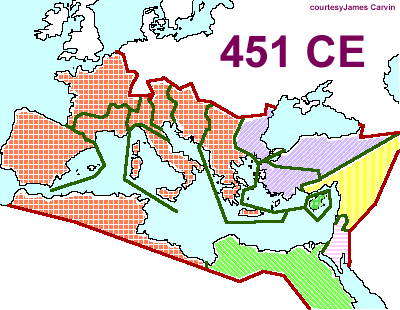 |
|||||||||||||||||||
|
|||||||||||||||||||
Ecc514 - Orthodox Ukrainian jurisdictions |
|||||||||||||||||||
Lesson 1: Early Church Jurisdictions - 8
Paul and many others had already evangelized the areas around Greece, Mesopatamia, Ephesus, Celicia and Galatia. The Holy Spirit had not allowed the early Christians to go into all of Asia on his first journey (Acts16:6). But in subsequent journeys he was unhindered (Acts19:26). The proclamation of Christianity as the official religion of was certainly a way to quell fear and uprising, if it was not a genuine conviction of the emperor. This would not have been the case if the locals were not already largely persuaded to the Christian faith. However, the expansion of major Christian metropolia was rapidly accelerated with his help, so that under a new Patriarchate, , Ephesus and NeoCaesaria would all be served. To be sure, the course of Christian evangelism started in centuries prior to the establishment of a capital city called Constantinople or Istanbul, with Andrew, the brother of Peter. As was the practice, bishops were appointed to oversee various regions. Ancient dyptichs which list the successions of bishops show Andrew appointing Stachys (Rm16:9), Stachys appointing Onesimus (Col4:9;Phm1:10), and Onesimus appointing the great Polycarp of Smyrna. These earlier appointments were on the western coast of Asia. Clearly Ephesus and Smyrna were the epicenters of growth. Babylon was on the eastern frontier of . If Peter did, in fact, travel to Babylon, as may be indicated in one of his epistles (1Pt5:13) and as would have been entirely possible since as Josephus indicated, there was a large community of Jews there (Ant.15:2,3), there is still no subsequent specific historical evidence this was the case.
|
|||||||||||||||||||
|
|||||||||||||||||||
 The Emperor Constantine expanded the Roman frontiers in every direction and set his face most especially to the East. But the influence of the emperor on the jurisdiction of the church is overplayed.
The Emperor Constantine expanded the Roman frontiers in every direction and set his face most especially to the East. But the influence of the emperor on the jurisdiction of the church is overplayed.